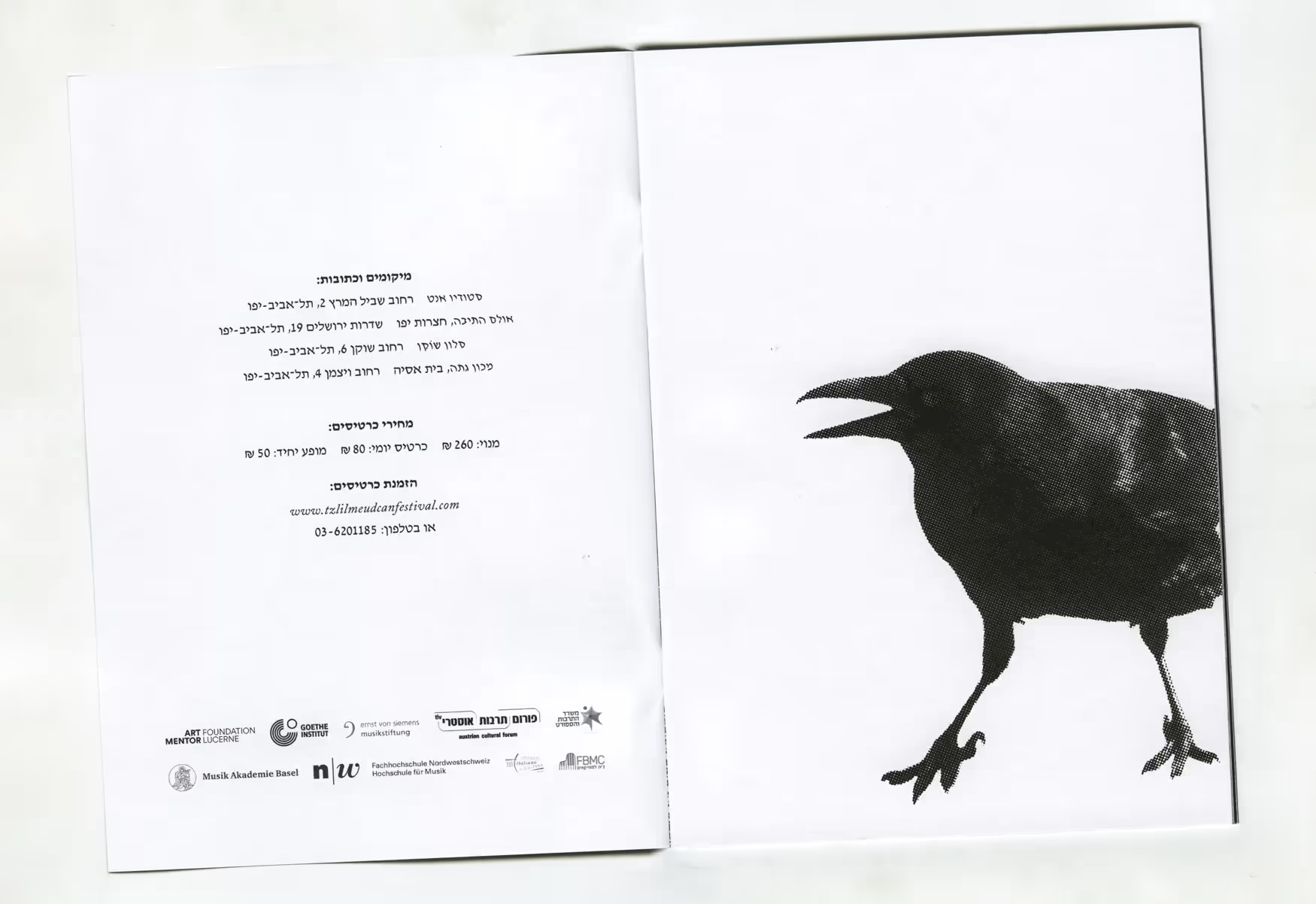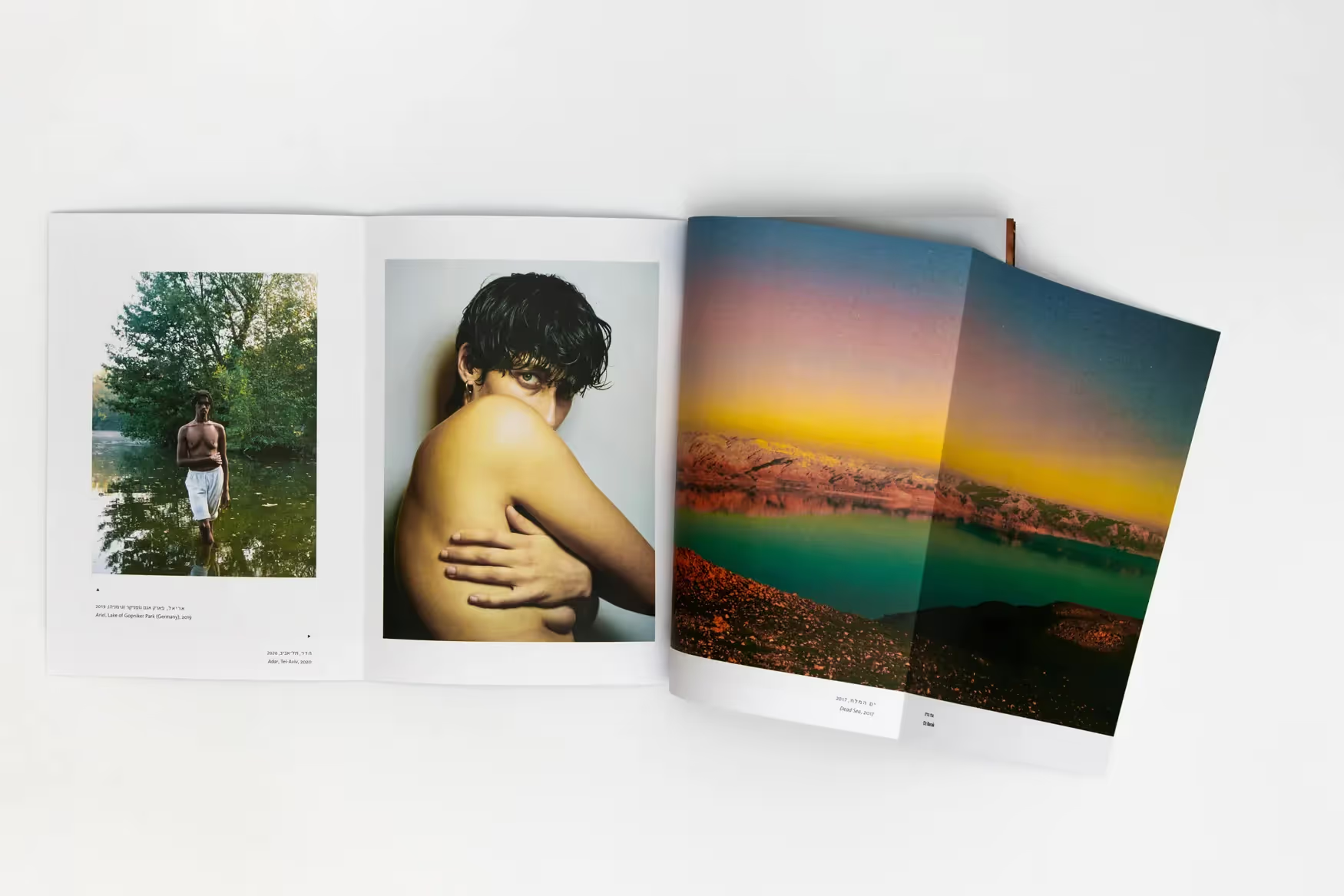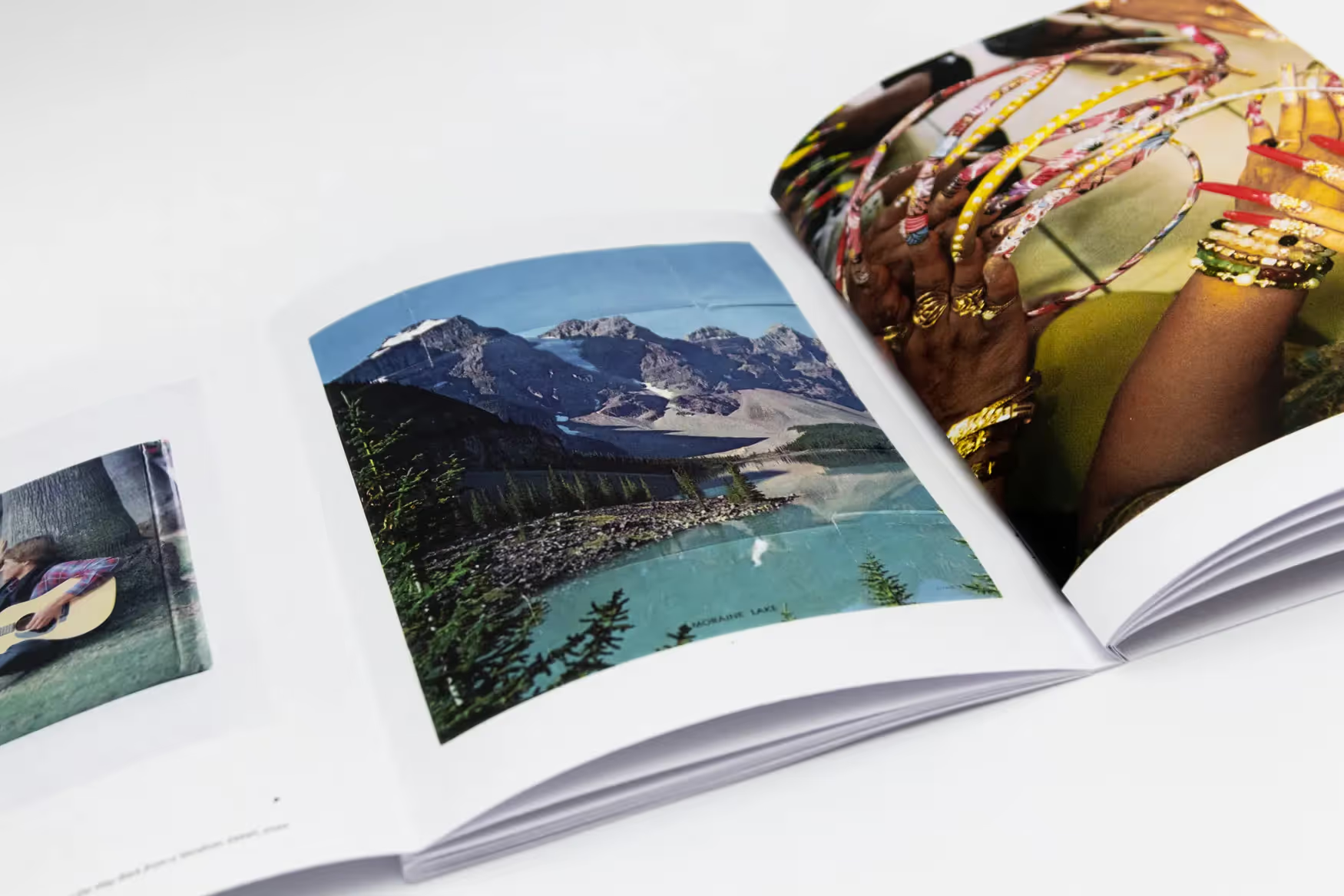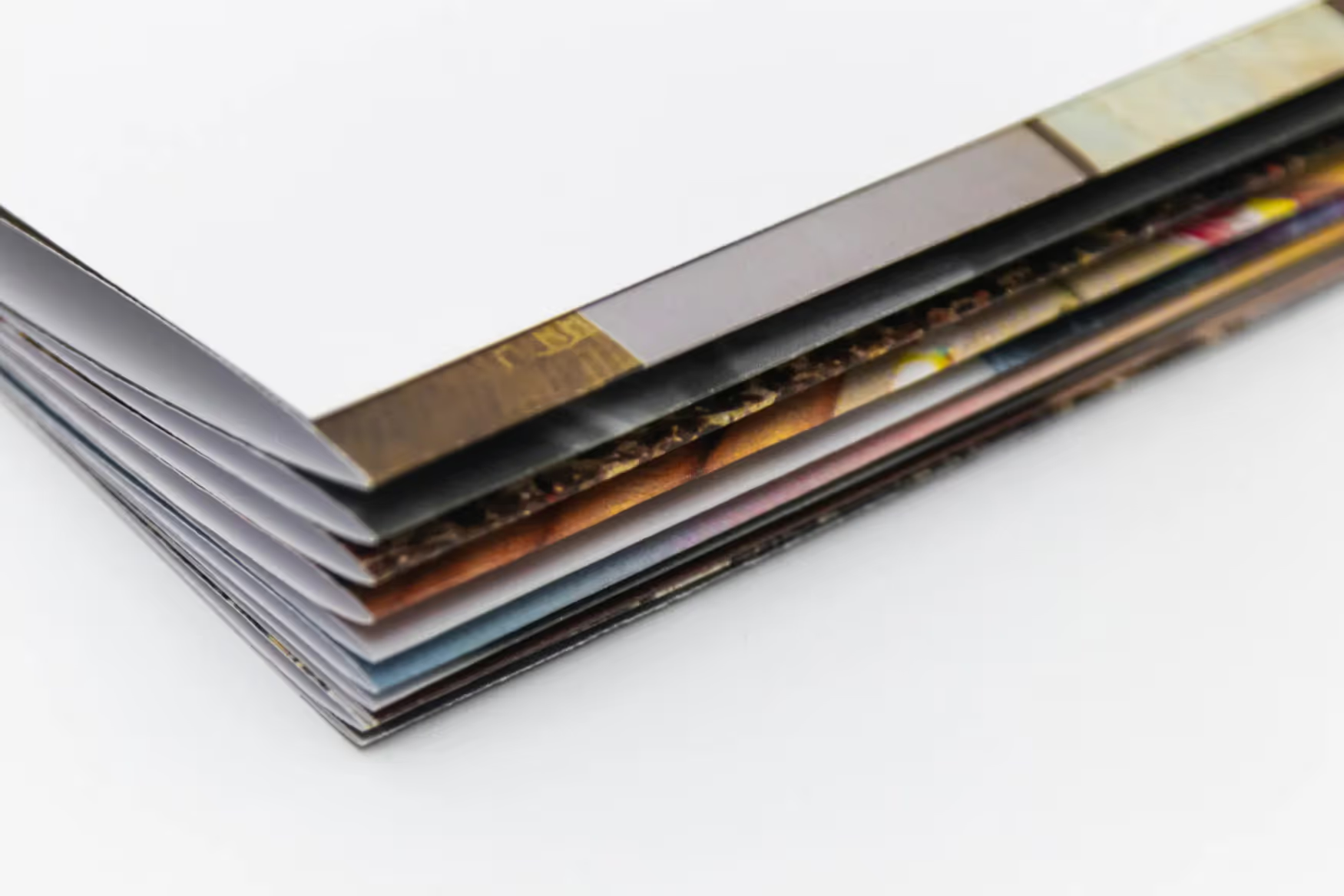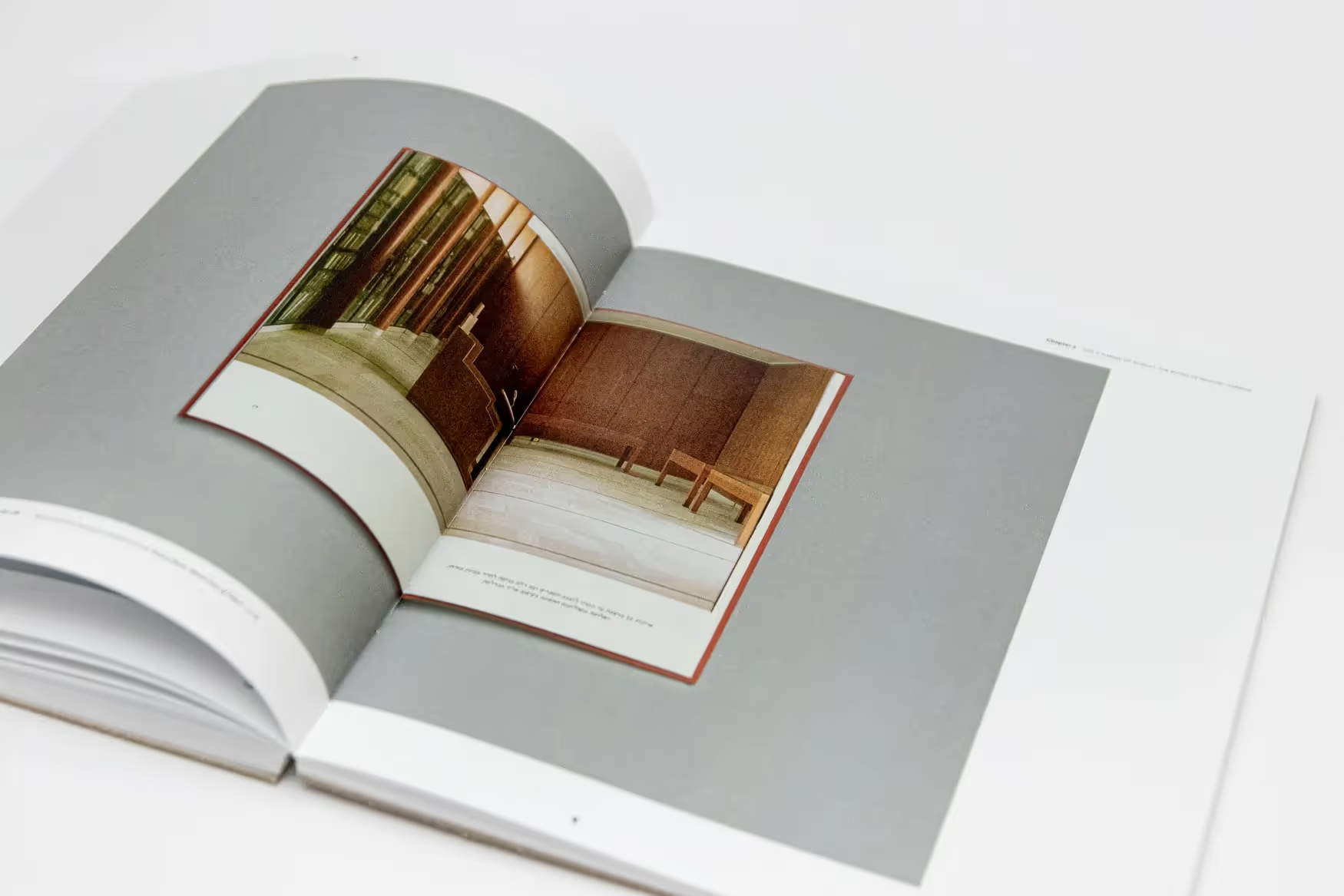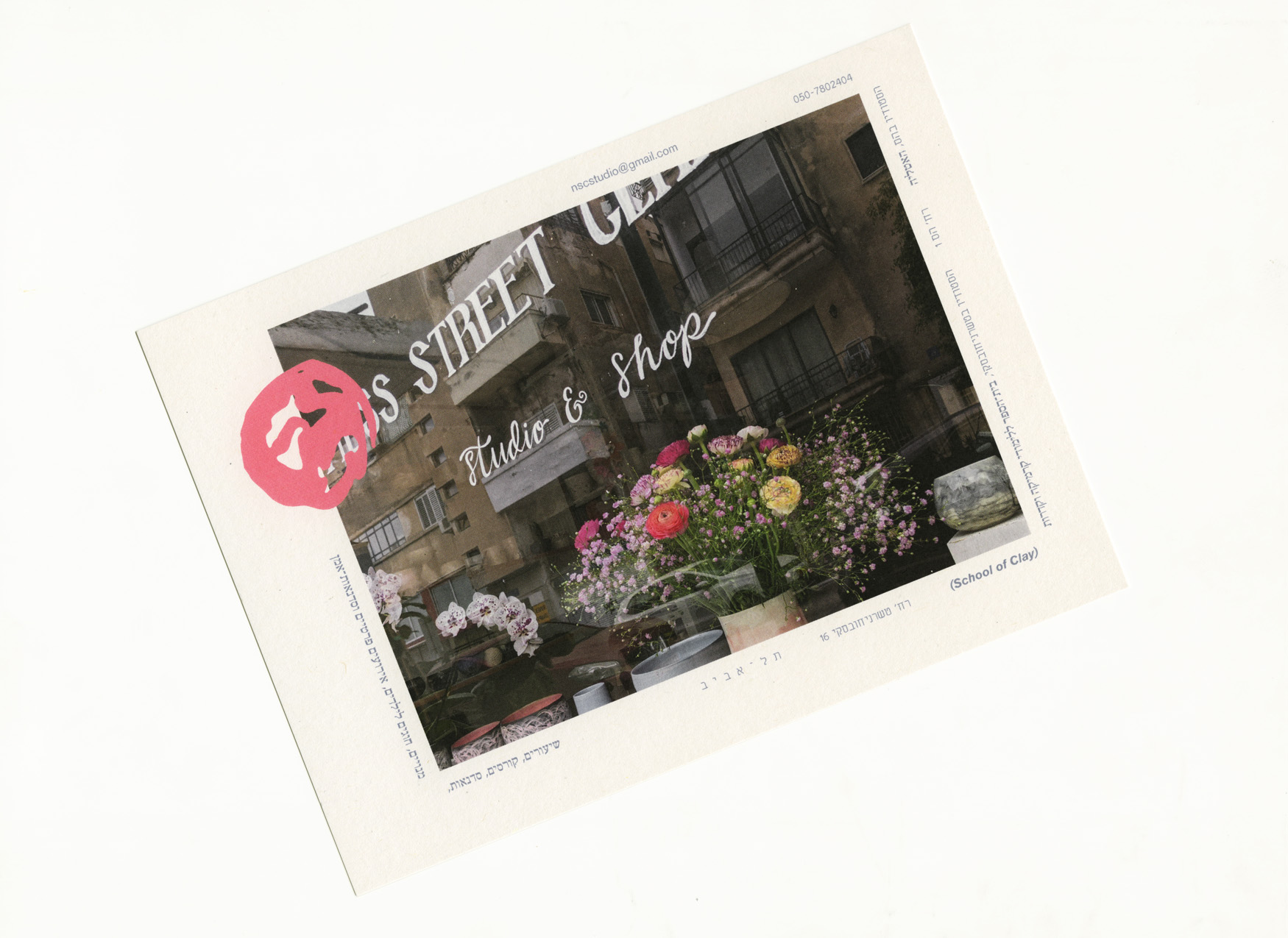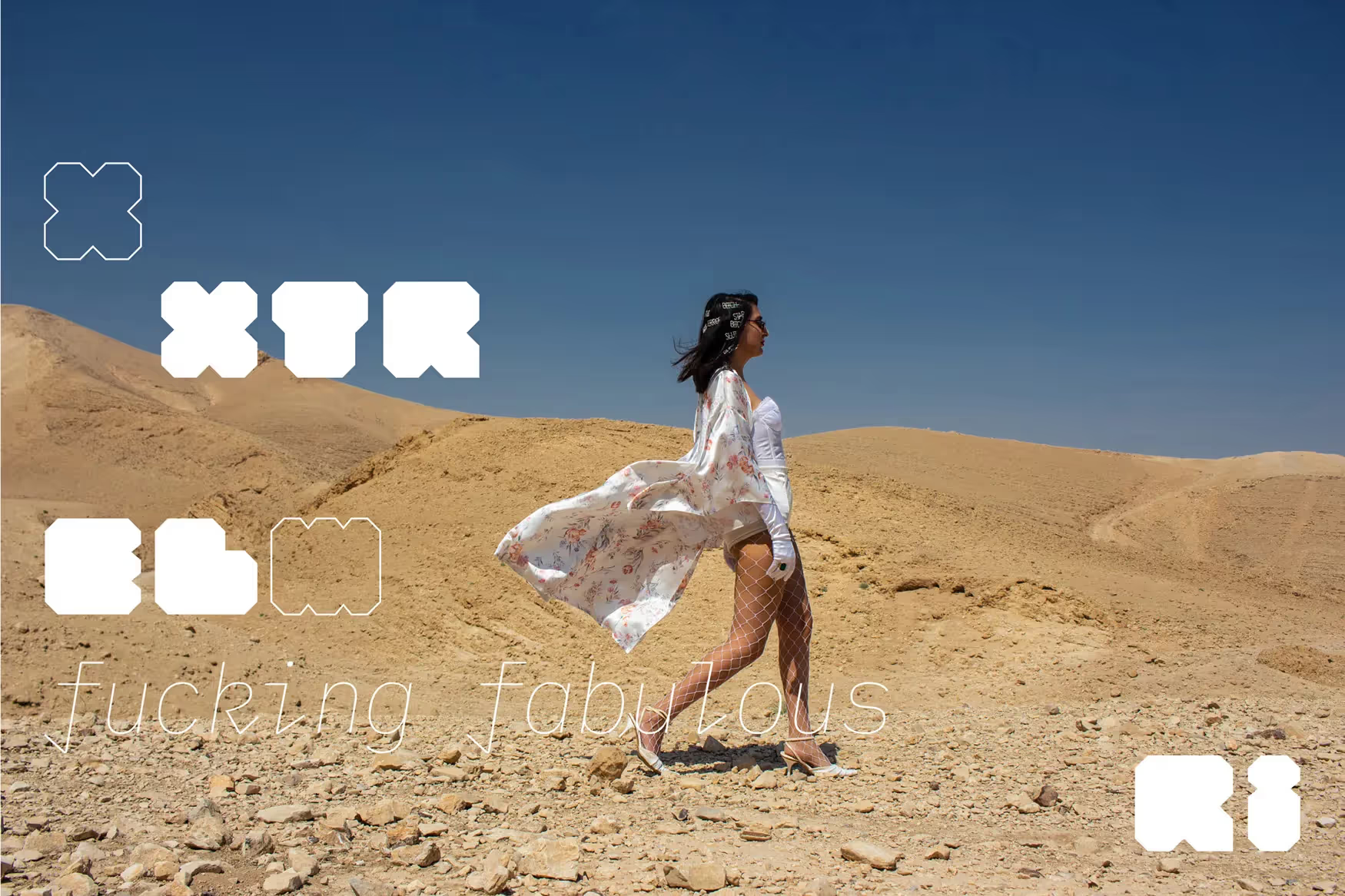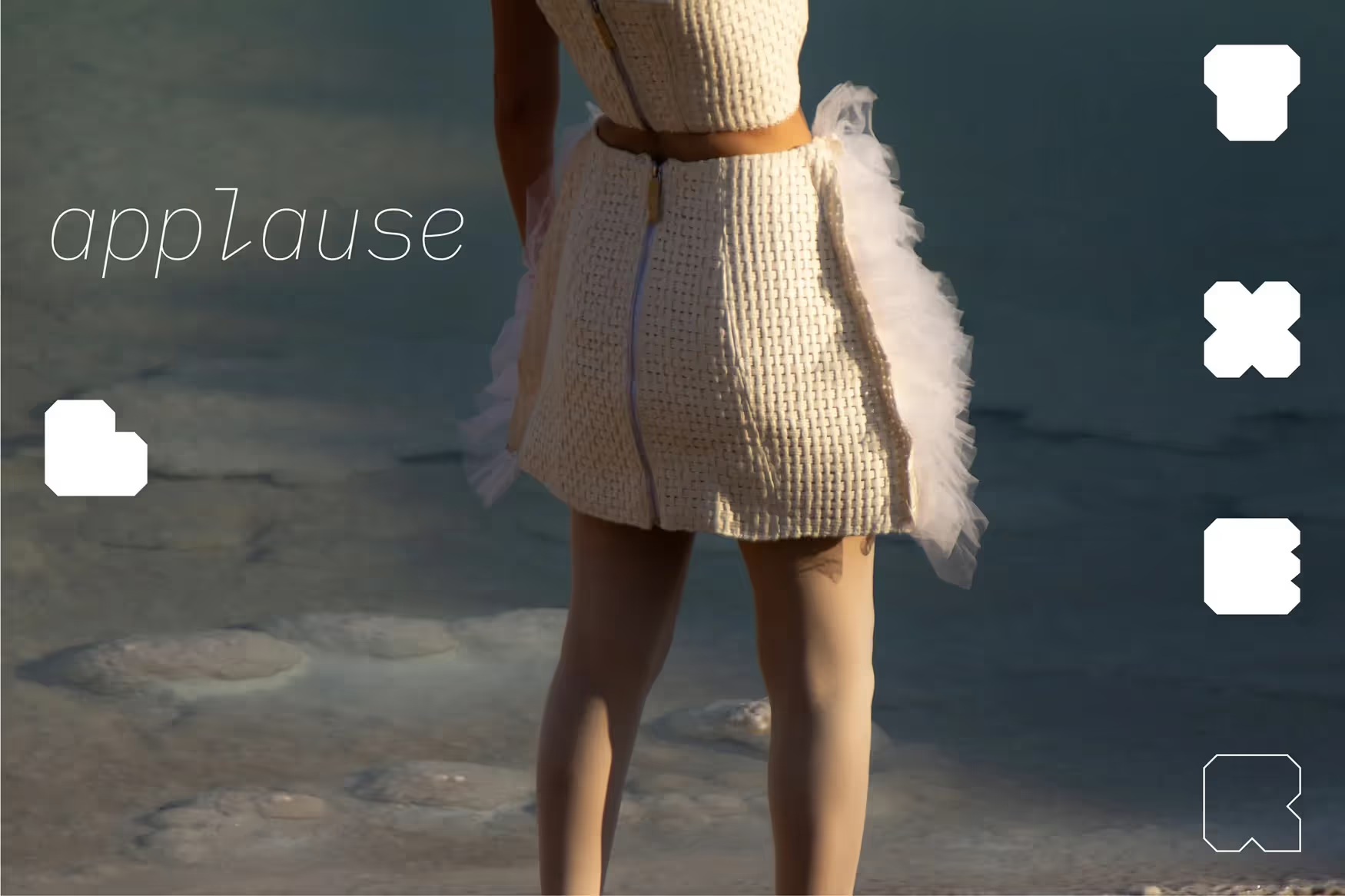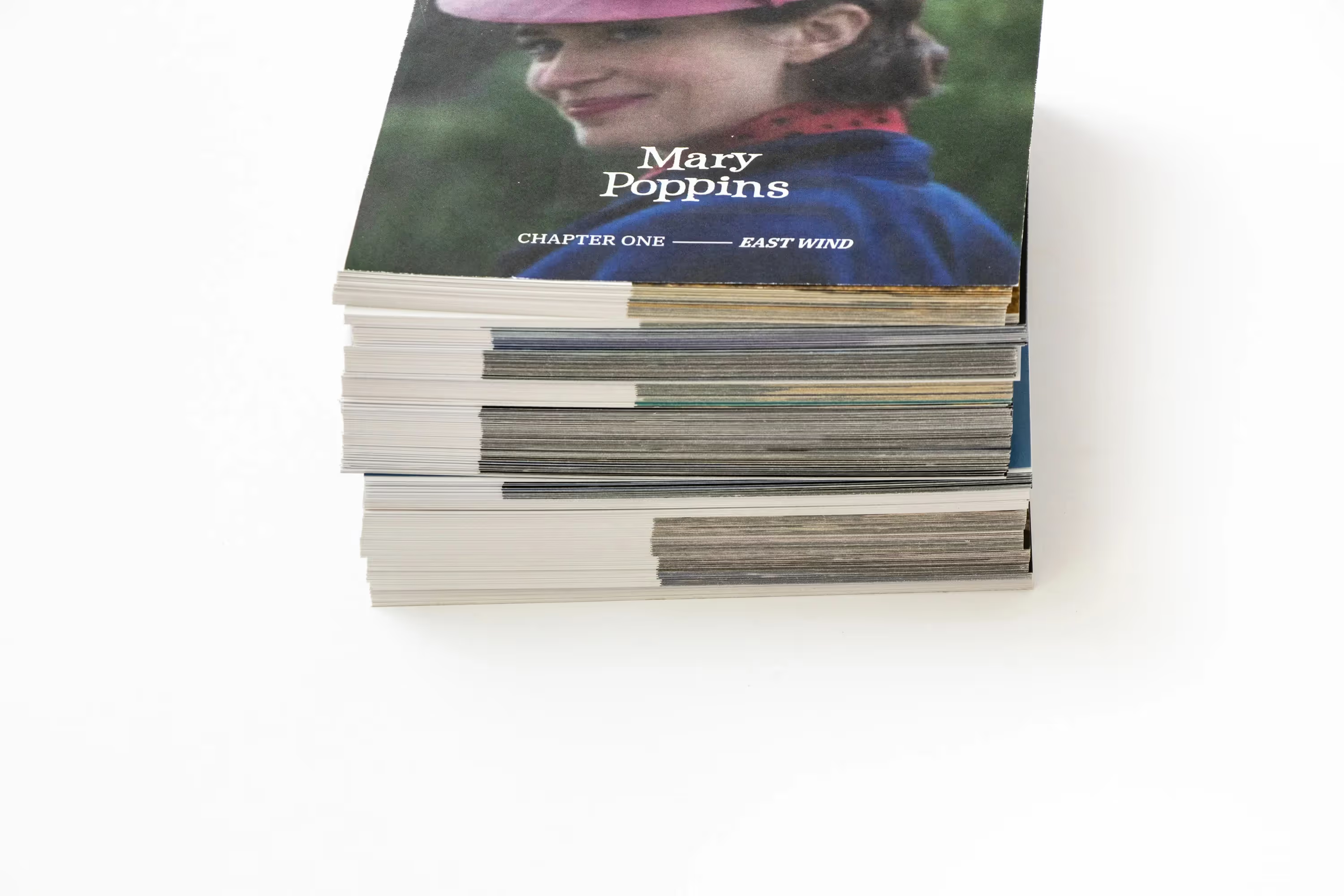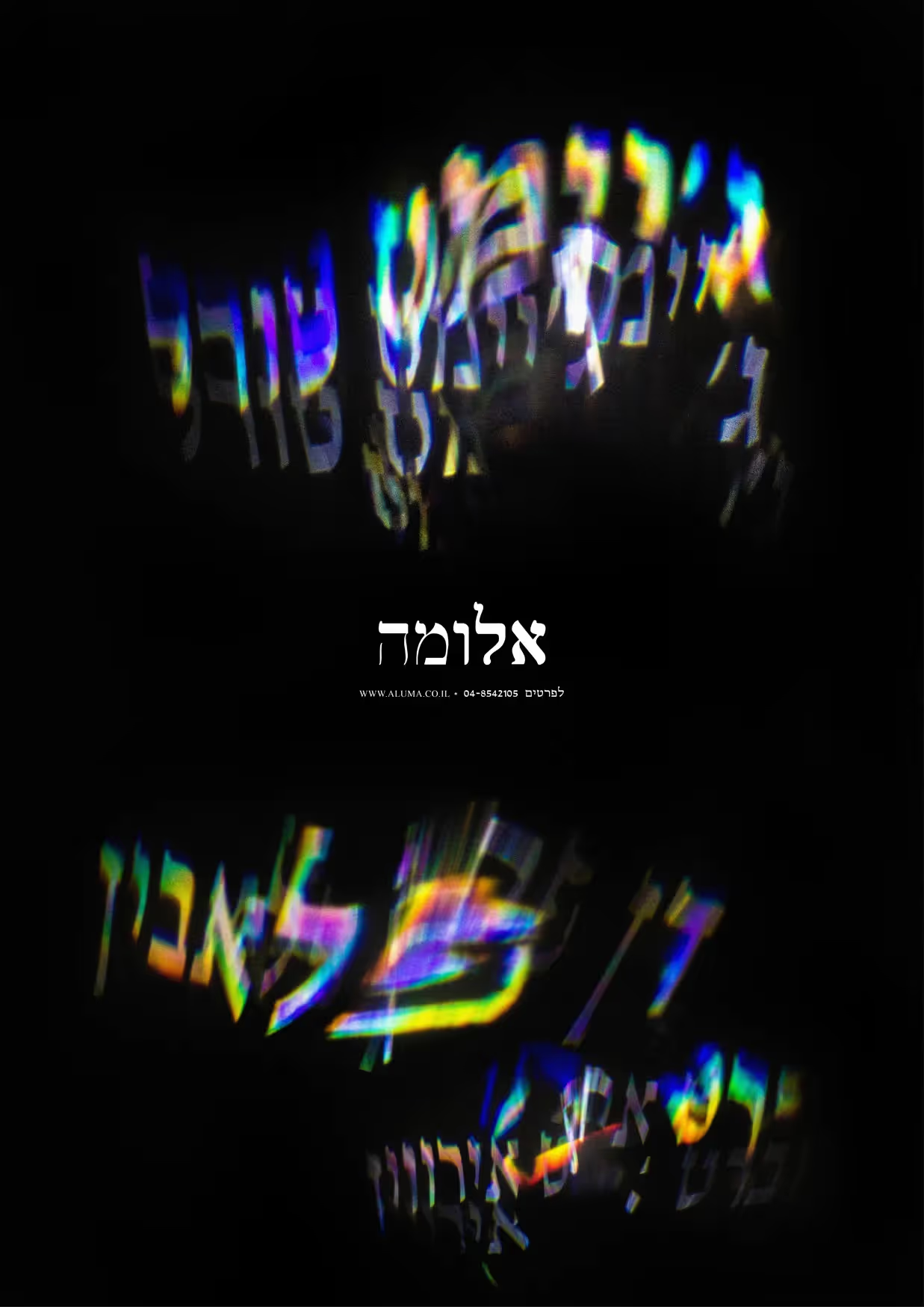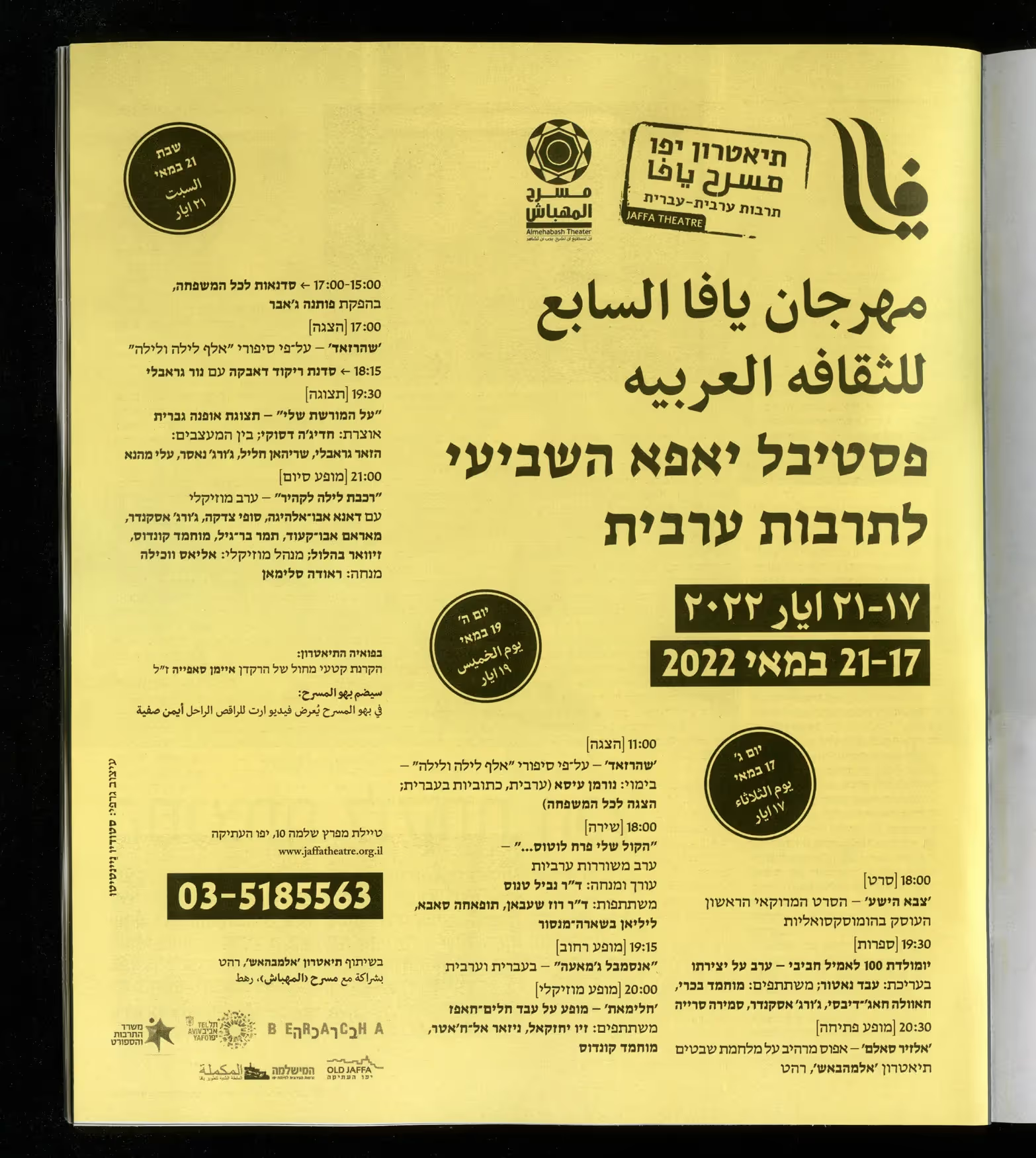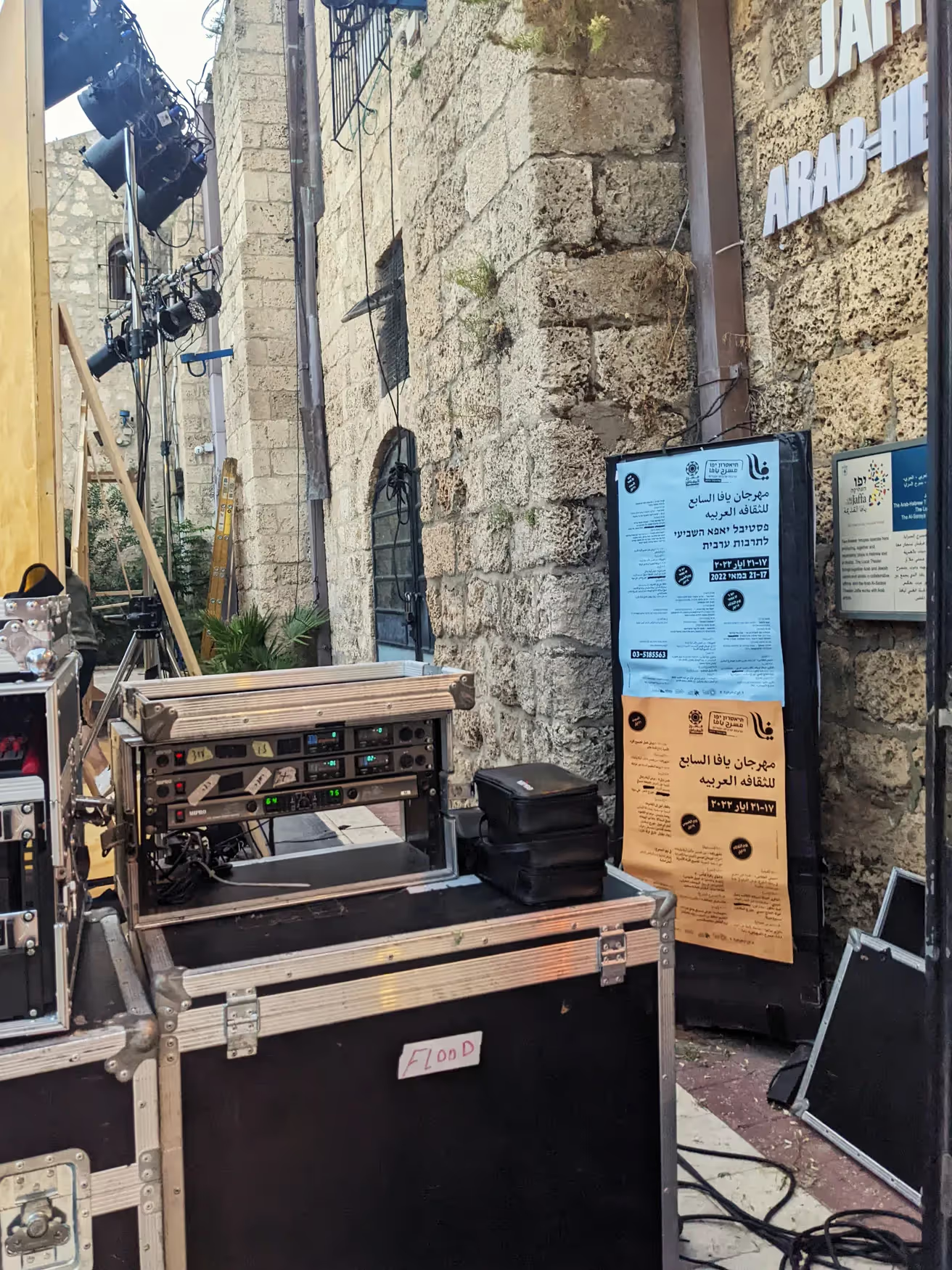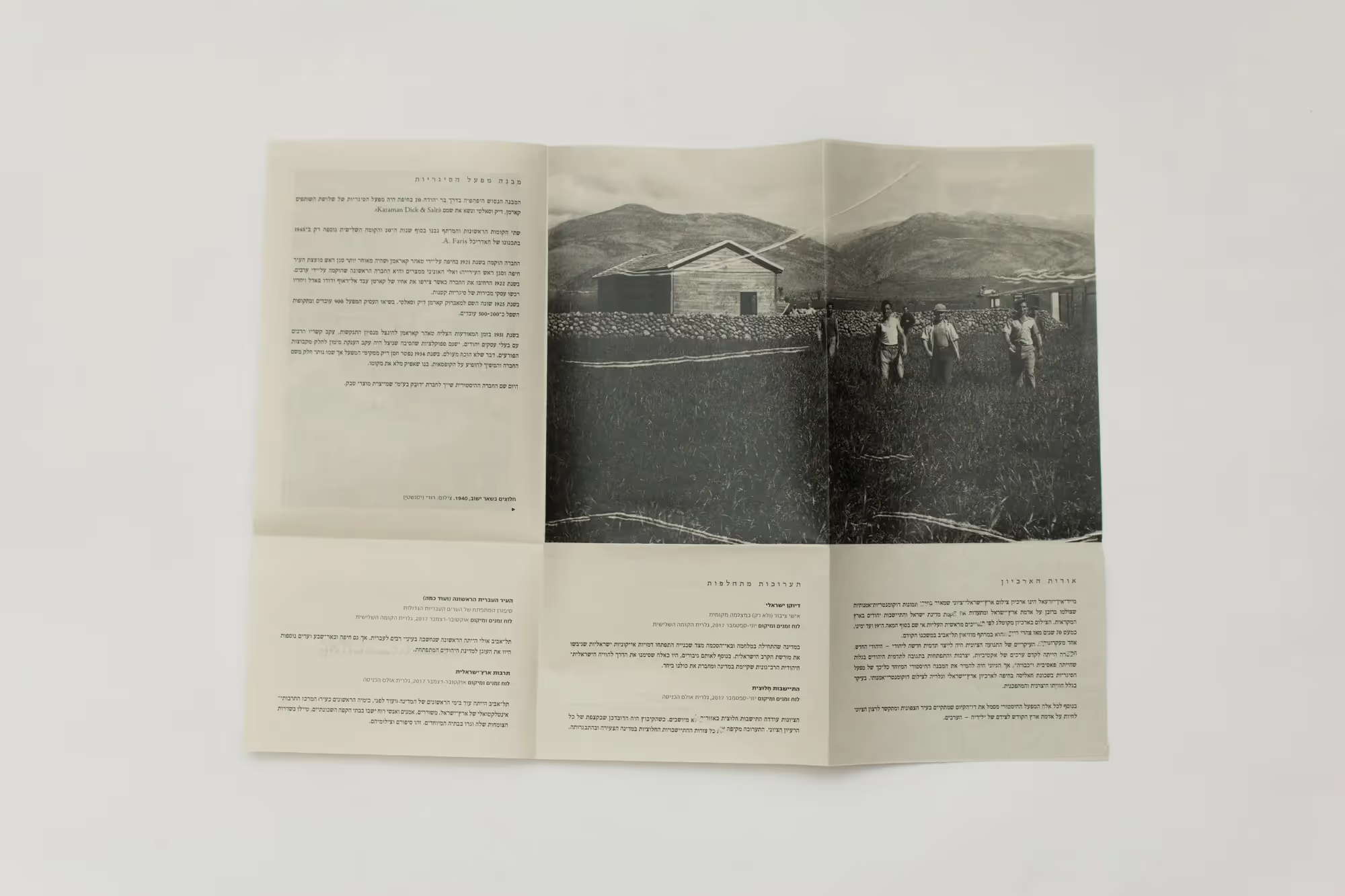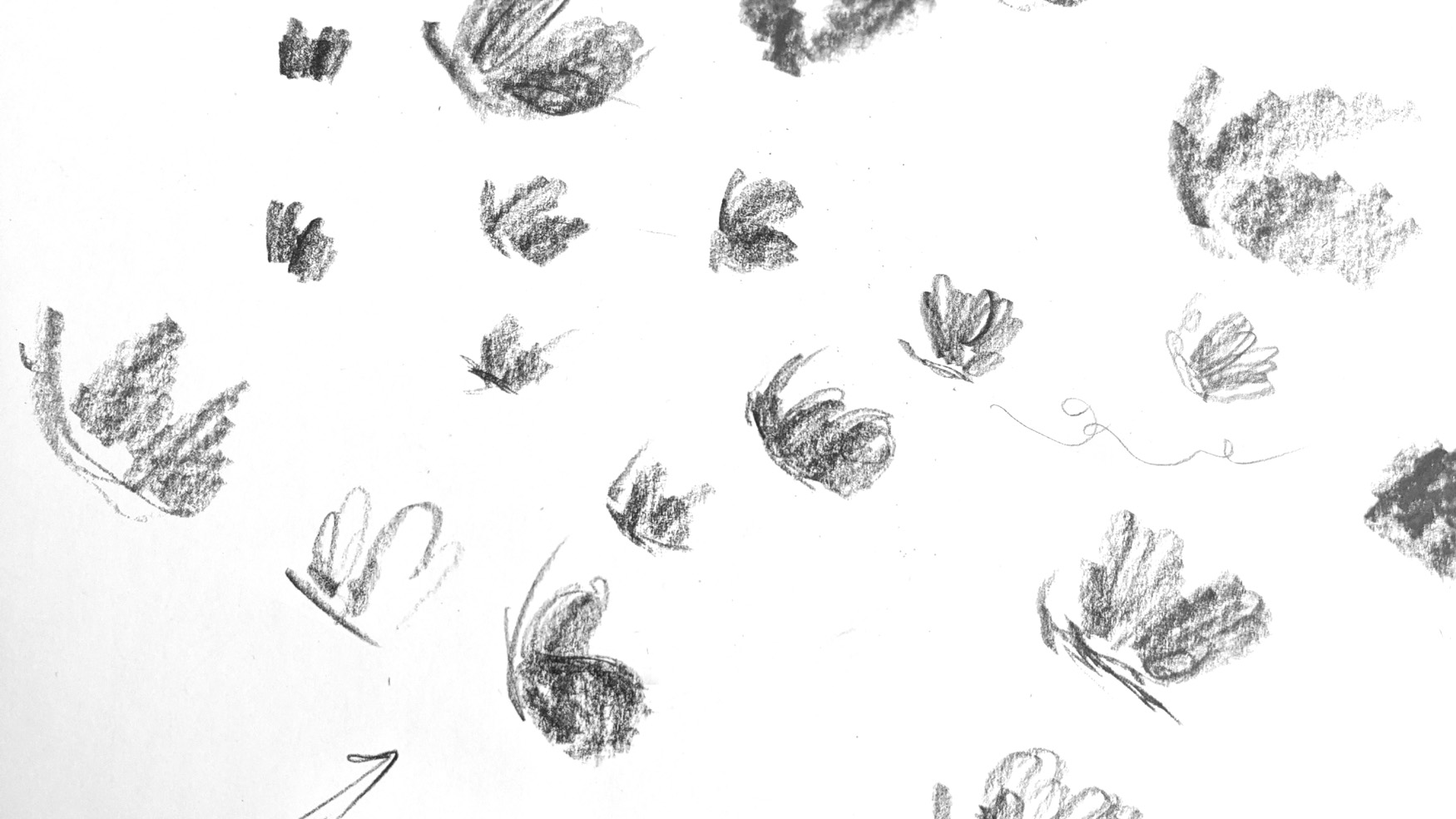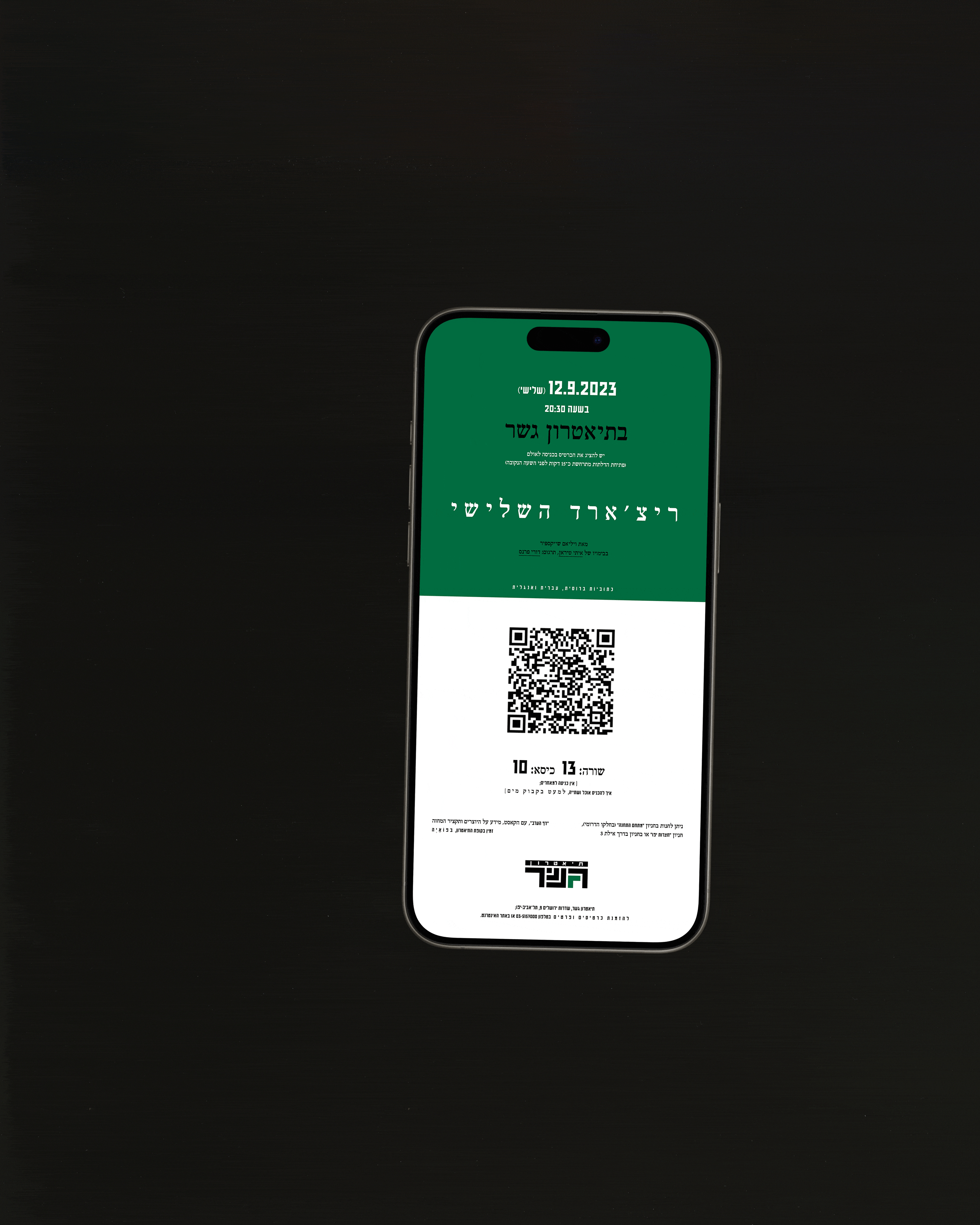NINETYTWO is an artistic-design studio which specialised in creating brand identities, book and type design as well as conceptual photography and art-direction. Owned by Gal Shneor and Enav Sharon-Nitzan.
The studio founded in the Autumn of 2016 by its two co-owners, working mainly in the artistic-cultural fields. Parts of the studio’s creation was exhibited around the world in London, Milano etc. In addition, NINETYTWO is taking part in an art collective which creates and discuss the abstract area of conceptual art. Since its establishment, the studio has collaborated with multiple clients in a range of fields between the art, culture, music, fashion, agriculture and so on.
An important sphere which the studio creates within is a documentary act of reviving classical Hebrew typefaces in terms to keep and reserve the original design decisions of the creator. Those versions are meant to be reliable, clean and free from design mannerism as possible.
Gal Shneor is an Israeli book designer and educator specialising in the fields of type and complex design. Holds a 2019–20 Master’s in Book Design from the Typography & Graphic Communication department, University of Reading (Great Britain), which followed a Graphic Design Bachelor from the Neri Bloomfield School of Design and Education, Haifa (Israel). Moreover, he worked at Michael Gordon Studio for more than two years; presented his works in exhibitions around the world. Shneor is currently both Typography & Hebrew Script and Graphic Design lecturer at Sami Shamoon College of Engineering’s Faculty of Design and Architecture; and a Complex Typography lecturer at the Minshar School of Art in Tel-Aviv. He also was a lecturer at the very academy where he completed his undergraduate studies.
Enav Sharon-NitzaN is an Israeli artist, graphic designer and photographer focused on the fields of visual creation, branding and type design. Sharon-Nitzan completed her Master’s Degree in History of the Arts and Curation at the Ben-Gurion University of the Negev. Since graduating with a Graphic Design Bachelor from the Neri Bloomfield School of Design and Education, Haifa (Israel), she build her expertise by leading and designing layered visual identities processes among visual strategy development. Additionally, showcased her dissertation in a talk at the Typography Theory Practice conference taking place Leeds Beckett University’s School of Arts; and presented her creations as part of international exhibitions, such as Milano Design Week. These days, she is a Complex Typography lecturer at Sami Shamoon College of Engineering’s Faculty of Design and Architecture.
—
Selected clients
Israel Museum, Jerusalem; Negev Museum of Art; Jaffa Theatre—the Arab-Hebrew Theatre; ‘Am Oved’ Publishing House; Ivri Lider (an A-list Israeli musician); ACAC, the Arad Contemporary Art Centre; The Jerusalem Post; Beit Ha'Gefen (Arab-Jewish Culture Centre) Contemporary Art Gallery, Haifa; Ashdod Museum of Art; Lewis Magazine [London, United Kingdom]; Hansen House—Centre for Design, Media and Technology; Edmond de Rothschild Centre, Tel-Aviv; ‘Kadima’ Publishing House; Be'eri Gallery; Te'atronNeto, a Festival for Original Monodramas; Indie Photography Group Gallery, Tel-Aviv















Southern Israel
+972-54-2093320 / +972-52-2881346
hello@ninetytwo.studio
Instagram / Linkedin
press
Typography Theory Practice Conference [October 2024]
Madaf: Artist’s Books from Israel
[January 2024]
Rothschild-Sheinkin Corner [November 2022]
Alef-Alef-Alef [August 2021]
Ha'Aretz Weekend Art and Culture Supplement [June 2021]
Portfolio [November 2020]
funkdesign.it [March 2019]
Fontimonim [October 2018]
Design Museum Holon Magazine [August 2018]
Ma'ariv [August 2018]
© All projects, visual and conceptual contents are subject to copyright laws under the name of ‘NINETYTWO’ studio by Gal Shneor and Enav Sharon-Nitzan; All photographs taken by the studio and their rights are reserved, unless otherwise mentioned specifically (2026).





































